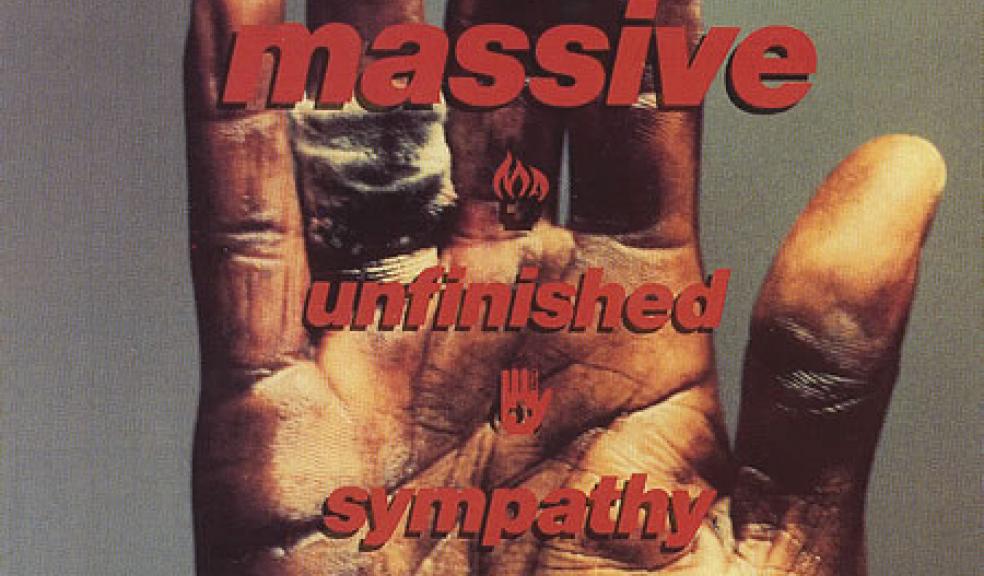
Fantasy Jukebox - 3. Massive Attack - Unfinished Sympathy
Imagine a fantasy jukebox that contained all the most influential, innovative, adventurous and just plain great music since the dawn of the recording era. OK, so the likes of iTunes, YouTube and Spotify have made this more of a reality than a fantasy, but setting aside their rather indiscriminating presence, what should it include?
Continuing a series exploring some of the key musical statements of the recording era, Matthew Vizard picks a game-changing British hip-hop-soul masterpiece.
3. Massive Attack - Unfinished Sympathy (1991, Circa Records/Virgin Records)
Writers: Robert Del Naja, Grantley Marshall, Andrew Vowles, Jonathan Sharp, Shara Nelson
Homegrown hip hop and soul music had been struggling to find its own uniquely British appeal for a decade or more when a mixed race Bristol group arrived on the scene at the turn of the 1990s.
Progenitors Soul II Soul had made a tidy profit from the brilliant and smartly calculated one-two punch of Back To Life and Keep On Movin' at the tail end of the previous decade. Masterminded by the entrepreneurially-minded Jazzie B, their club-inspired anthems appealed to a hip new crowd hungry for music that converged with where their heads were at. For a generation mesmerised by the house and techno grooves emanating from Detroit and Chicago DJs, Soul II Soul provided escapism with a touch of melancholy; hip hop with a sweetening of soul. Seamlessly melding smooth production with tastefully manicured beats, this was how the 1980s would merge into the 1990s.
So it was that the punningly titled Unfinished Sympathy emerged like the troubled child of Soul II Soul's more Top Shop-friendly, upwardly mobile urban sound; bleeding darker hues into the era's post-summer of love dayglo.
Formed from the scattered talents of a 1980s Bristol sound system collective called The Wild Bunch, who drew on the influence of punk, R&B, reggae and dub; Massive Attack arrived fully formed - intense and unsmiling, they stared down the new decade.
Robert "3D" Del Naja, Andrew "Mushroom" Vowles and Grant "Daddy G" Marshall formed the core trio of the group that also, initially, included a certain Adrian Thaws, or Tricky as he was known, plus singer Shara Nelson who shared vocal duties on debut LP Blue Lines with Jamaican roots legend Horace Andy.
Their second single is built on a tensely persistent percussion sample with a sombre, string arrangement by established composer/arranger Wil Malone. Its loose, chilled groove added new layers of possibility to the developing beats culture, coining a much-copied style - 'trip hop', a moniker generally dismissed by its alleged proponents (Portishead, Tricky et al).
It sounded breathtaking, unfolding its tendrils from the radio in the early spring of 1991. To a generation of floppy-fringed indie kids dipping a pale, skinny toe into the perilous waters of dance music via the voguish Madchester, baggy and indie dance scenes, it proved persuasive. If any group possessed the opportunity to spark a radical shift towards a classless, genre-less, truly unifying musical adventure, it was the alternative crowd-pleasing, NME-friendly Massive Attack.
But then again, perhaps they were simply too downbeat to be revolutionaries.
The song's lyric, with its "really hurt me baby" refrain, offers no clues to any obvious social or political agenda. Its internal drama was inward-looking and seemed little interested in the zeitgeist. Instead, a seeping melancholia pervades the record, turning the era's default positivity setting on its head.
Unfinished Sympathy is a lyrical and musical battle between torment and resignation, rage and reconciliation. Caught between states (is the protagonist in or out of a relationship? Is the music of or counter to the contemporary scene?), it seems to usher in the new decade's uneasy self-confidence - bold in its way, yet acutely aware of an inevitable fall from grace.
The strings, recorded at Abbey Road, are at once sinister and soothing; Shara Nelson's vocal is hurt and betrayed, yet coolly defiant.
The influential video - filmed in LA as one continuous shot of Nelson striding disconnected through an urban landscape of disparate souls - provided an atmospheric setting for the song. Was it saying something about our generation's narcissism, or was it simply a reflection of the group's natural diffidence and noirish cool?
Certainly Unfinished Sympathy left a mark on British music. It helped pave the way for an explosion of UK urban music which would eventually create a new commercial mainstream for the likes of Dizzee Rascal and Plan B. It also offered an index of possibilities to the more intuitive 90s artists like Radiohead and Blur who realised samples and beats could be at least as cool as guitars.
While Blue Lines may have become a key coffee table staple of the nation's hip metropolitan set, it still sounds bold and radical, with Unfinished Sympathy as its flag bearer. A future soul music for more complex times: a cold yet seductive psychodrama; heartbroken and yet somehow, ultimately, carrying its head held high.












